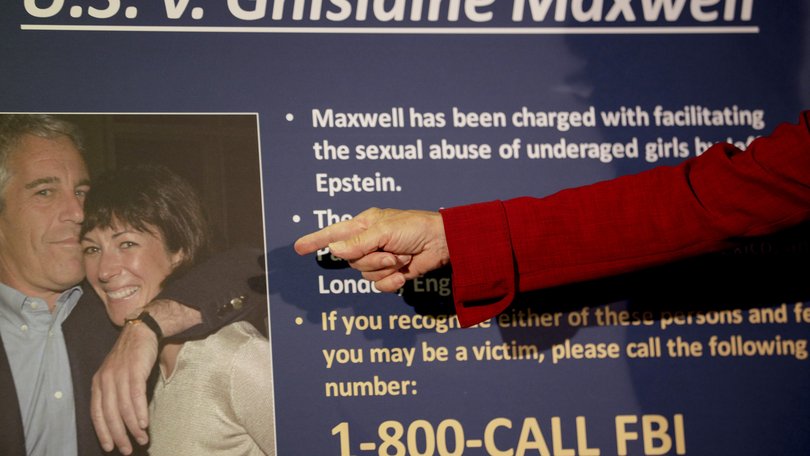Manhattan judge denies request to unseal Epstein Grand Jury transcripts
NEW YORK TIMES: A US federal judge has denied the Trump Administration’s request to unseal grand jury transcripts about disgraced financier Jeffrey Epstein.

A Manhattan federal judge Wednesday denied the Government’s request to unseal grand jury testimony about disgraced financier Jeffrey Epstein, a motion made as President Donald Trump tried to dispel criticism and conspiracy theories from his supporters.
Epstein, who moved in some of America’s most exclusive circles, was indicted in 2019 on sex trafficking charges. In his 14-page opinion, Judge Richard M. Berman said that the only grand jury witness had been a single FBI agent.
Mr Berman said that although Mr Trump’s Justice Department had argued that there was precedent for unsealing grand jury testimony, there were no “special circumstances” that would justify it — and that the transcript “pales in comparison to the investigation information and materials in the hands of the Department of Justice.”
Sign up to The Nightly's newsletters.
Get the first look at the digital newspaper, curated daily stories and breaking headlines delivered to your inbox.
By continuing you agree to our Terms and Privacy Policy.The department has already undertaken a “comprehensive investigation” and “assembled a ‘trove’” of documents, interviews and exhibits, the judge wrote.
“The government is the logical party to make comprehensive disclosure to the public of the Epstein files,” Mr Berman wrote. Its request to unseal the meagre transcript “appears to be a ‘diversion’ from the breadth and scope of the Epstein files in the government’s possession.”
The federal government has 100,000 pages of files and materials that “dwarf the 70-odd pages of Epstein grand jury materials,” the judge said. Indeed, the Justice Department is to begin providing some files about the Epstein case to lawmakers Friday, the chair of the House of Representatives’ main investigative committee said this week.
In the six years since Epstein was found dead in his jail cell at the Metropolitan Detention Center while awaiting trial, his death has inspired myriad conspiracy theories.
His proximity to powerful people inspired conspiracy theorists who have promoted the idea that America is controlled by a cabal of politicians and the wealthy. His death in federal custody, which was ruled a suicide, has also spurred improbable notions about an assassination.
Top aides to Mr Trump championed some of those theories before they entered government, and Mr Trump had promised to release information about the investigation. However, the administration’s failure to disclose any revelations has threatened to drive a wedge between the president and some of his most fervent supporters.
The Justice Department announced last month that it had closed an “exhaustive review of investigative holdings relating to Jeffrey Epstein.” The review “revealed no incriminating ‘client list’” or evidence that “Epstein blackmailed prominent individuals,” the department and the FBI said in an unsigned memo. The government indicated that there would be no more disclosures about Epstein.
The announcement set off a furious backlash.
The issue effectively brought the House to halt last month, but Republican leaders expressed hope that the Trump Administration’s requests to release grand jury testimony might mollify hard-right lawmakers and their constituents, who believe the material will implicate Democrats.
But before lawmakers left for their August recess, the Republican-led House Oversight Committee issued a subpoena to the Justice Department for its files on the Epstein case. The department said it would begin providing files to the committee by Friday — but the grand jury materials will remain secret.
Grand jury evidence, tailored by prosecutors to make their case, is presented in proceedings that almost always remain secret.
The Trump Justice Department’s request that Mr Berman unseal the transcripts was among several made to federal courts in New York and Florida in recent weeks, part of an effort by Mr Trump and his aides to stem criticism that the government was hiding information.
Mr Berman’s opinion came about a week after a different Manhattan judge denied the government’s request to unseal transcripts from its investigation into Ghislaine Maxwell, a longtime companion of Epstein. Maxwell is serving a 20-year prison sentence for sexually exploiting and abusing teenage girls in concert with Epstein.
In July, a federal judge in Florida denied a request by the Justice Department to release transcripts from two federal grand juries there that investigated Epstein in 2005 and 2007.
Confidentiality was a central concern for the judges considering the Justice Department’s requests.
The judge overseeing Maxwell’s case, Paul A. Engelmayer, said that unsealing grand jury materials “casually or promiscuously” would erode confidence in people called to testify before future panels.
In his opinion, Engelmayer said the Justice Department’s argument that the grand jury materials would bring to light meaningful new information was “demonstrably false.”
Doing so, in fact, “would expose as disingenuous the government’s public explanations for moving to unseal,” he wrote.
Echoing his colleague, Mr Berman said that the grand jury testimony in Epstein’s case was “merely a hearsay snippet.”
This article originally appeared in The New York Times.
© 2025 The New York Times Company
Originally published on The New York Times
